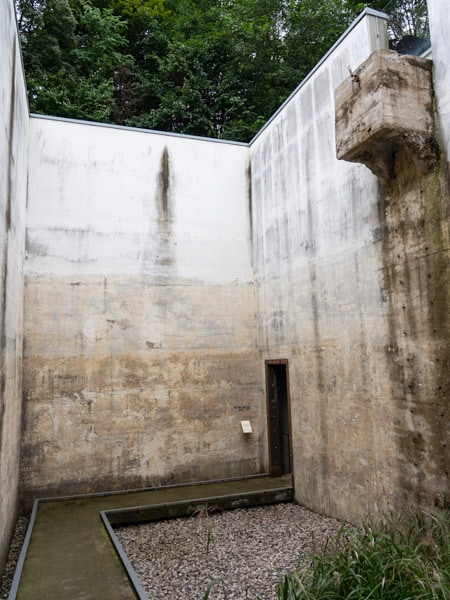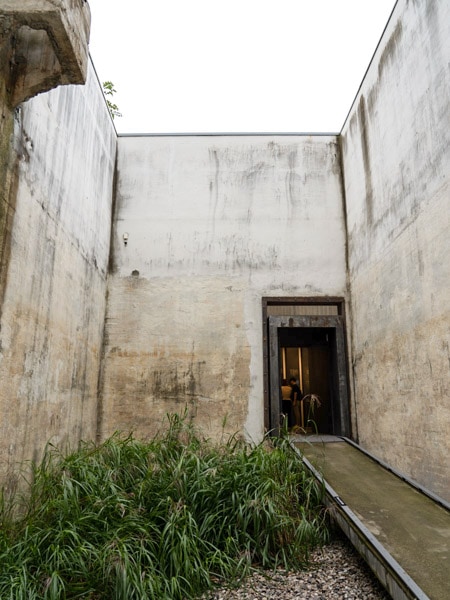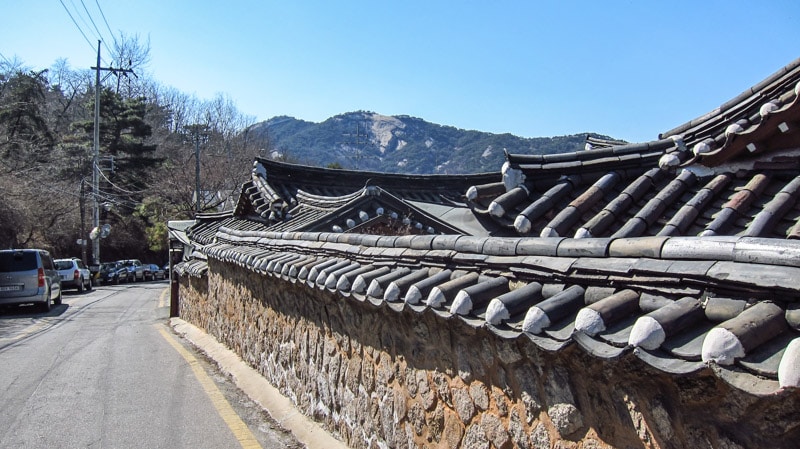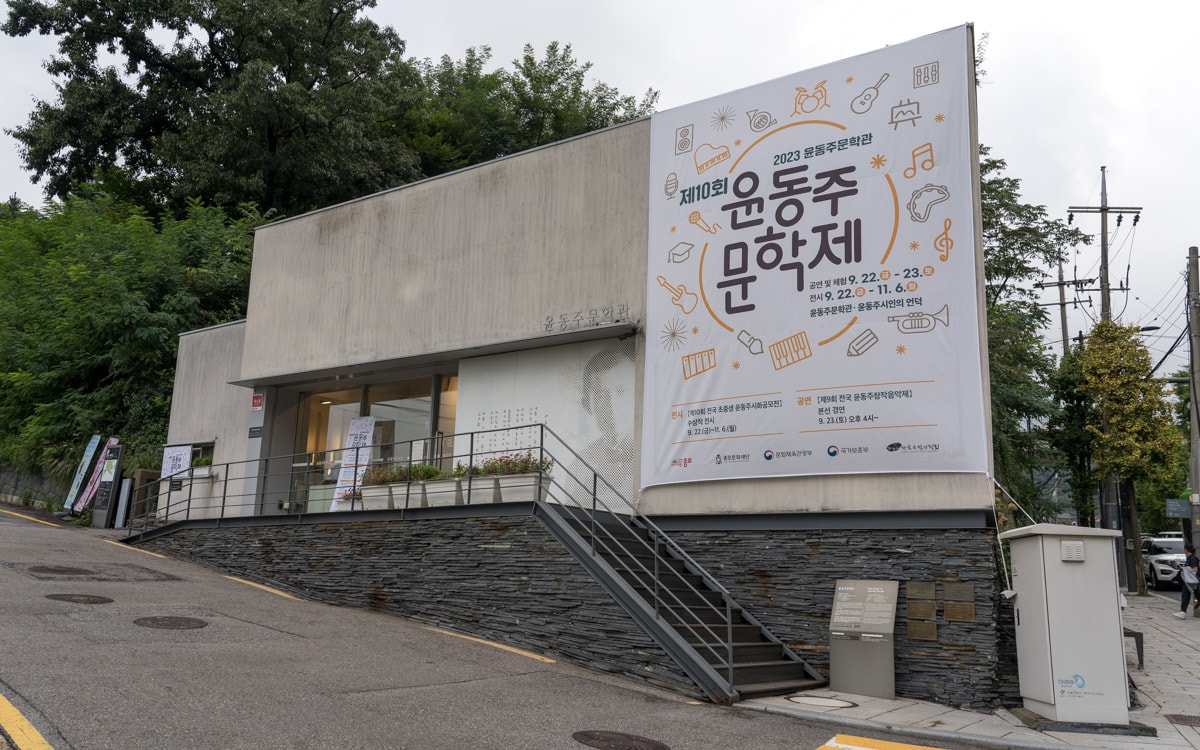
The Yun Dong-ju Literature Museum is dedicated to Yoon Dong-ju, one of Korea’s most beloved poets. Yoon’s extensive collection of over 100 poems, including ‘Sky, Wind, Stars, and Poem,’ was profoundly influenced and shaped by the colonial rule that prevailed during his lifetime.
Yoon composed his entire body of poetry in the Korean language. This was during a time when it was prohibited due to the oppressive Japanese colonial rule in Korea. And he fiercely fought to keep Korean tradition and culture alive through his poems.
His commitment to Korea, his nationalist sentiment, and his resistance through his poetry ultimately resulted in his untimely death. Despite his brief life, he left a profound impact on Korean literature.
In 2012, the Yun Dong-ju Literature Museum opened in the former Cheongun Pumping Station. It is located at the base of Inwangsan Mountain in Cheongun-dong. Yoon often referenced water wells in his poems. This created a meaningful link between his verses and the pumping station, which now houses the museum.
Today, the small museum houses Yoon’s personal items, photographs, and handwritten manuscripts, offering insights into his life and work.
The Life of Yoon Dong-ju
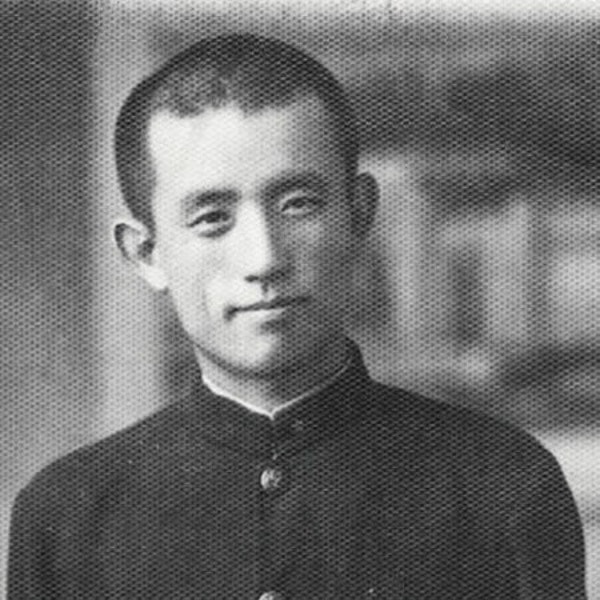
Yoon Dong-ju was born in 1917 in Longjing, China, during the period of Japanese rule over Korea. As a child, he attended Eunjin Middle School in Longjing. In 1936, he moved to Pyeongyang to enroll at Soongsil Middle School. During this time, Yoon wrote his first poems, some of which were published in Catholic magazines.
In 1941, he graduated from Yonhi College (present day Yonsei University) in Seoul. During this period, he wrote many poems that depicted his life and the harsh realities faced by citizens under colonial rule.
His most famous work is ‘Sky, Wind, Stars, and Poem,’ a poetry book containing 19 of his poems commemorating his graduation from Yonhi College. At the time, he wrote his book in Korean, a language prohibited under colonial rule. He originally intended to create 77 copies. Dissuaded, he made three handwritten copies. Today, only one copy remains.
In 1942, following his father’s advice, Yoon traveled to Japan to pursue his studies. This is where he wrote his final poems. Later, in 1943, Japanese authorities arrested Yoon on suspicion of being associated with the independence movement.
After a court sentenced him to two years in prison in 1944, authorities imprisoned Yoon at Fukuoka Prison. In 1945, Yoon passed away in prison at the age of 27 under suspicious circumstances.
Sky, Wind, Stars, and Poem
Yoon Dong-ju’s poetry book ‘Sky, Wind, Stars, and Poem’ was published posthumously in 1948. This publication fulfilled his unrealized wish through the efforts of his family and friends. The book included 31 of his poems, along with a preface by Poet Jeong Jiyong.
In 1955, admirers of Yoon Dong-ju’s poetry released an expanded edition of his book. This book contained 89 poems and four prose works, in commemoration of the 10th anniversary of his passing. Despite his short life, his works have resonated with generations of Koreans, poetry enthusiasts, and individuals who have faced adversity.
Cheongun Pumping Station
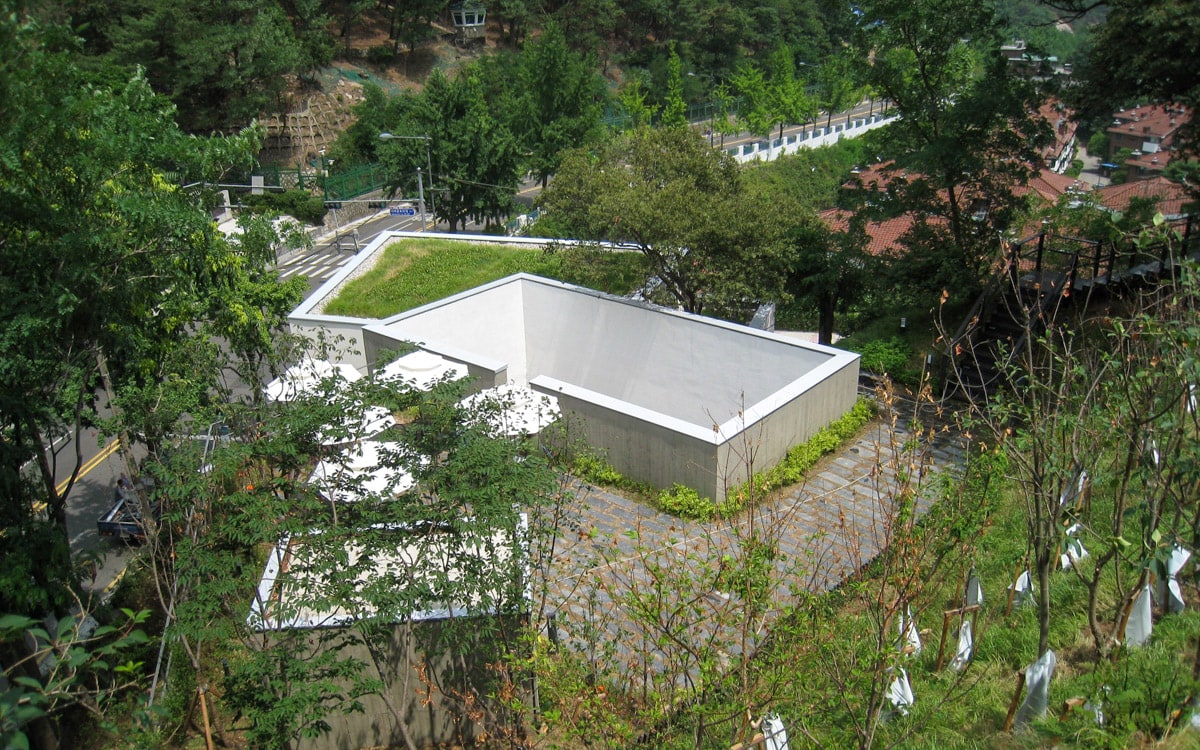
In the past, pumping stations were a common feature across Seoul. These stations pumped tap water into water tanks, with the generated pressure allowing the supply of water to high-elevation areas.
In 1974, the Cheongun Pumping Station opened at the location of the present-day museum. The station supplied water to the Cheongun Apartments at the base of Inwangsan Mountain.
In 2005, the demolition of the Cheongun Apartments made the pumping station unnecessary. As a result, residents demanded the demolition of the pumping station.
Local demands and the views of government officials differed regarding the station’s historical value and future. Luckily, the Yoon Dong-ju Poem Promotion Association, who possessed Yoon’s belongings, used the station for their meetings. Thereafter, they transformed the site into the Yun Dong-ju Literature Museum.
What to see at Yun Dong-ju Literature Museum
Poet’s Hall (Exhibition Hall 1)
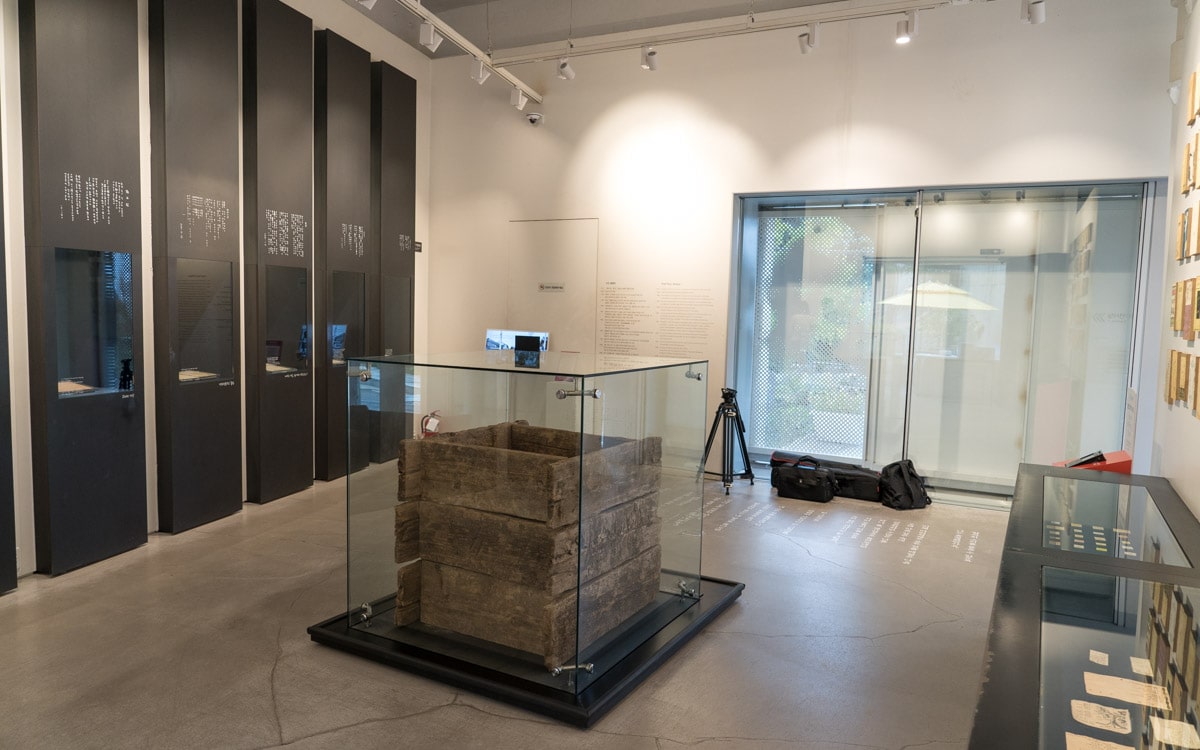
In Poet’s Hall (Exhibition Hall 1), visitors will discover a small yet inviting space dedicated to showcasing the pure poetic spirit of Yoon Dong-ju. Here, nine exhibits, arranged in chronological order, display photographs and handwritten manuscripts offering insights into Yoon Dong-ju’s life and work.
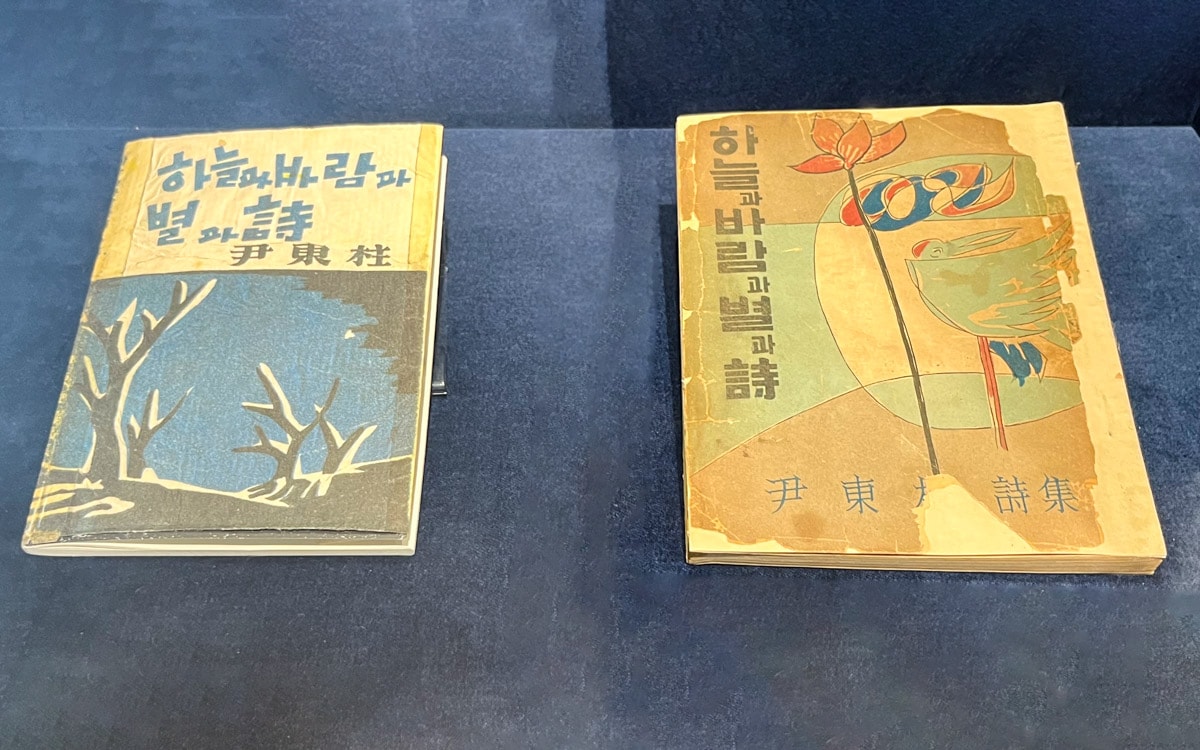
Highlights of this exhibition hall include the only copy of Yoon Dong-ju’s poetry book ‘Sky, Wind, Stars, and Poem,’ originally published in 1948. The expanded edition containing 89 poems, published in 1955, is displayed next to it.
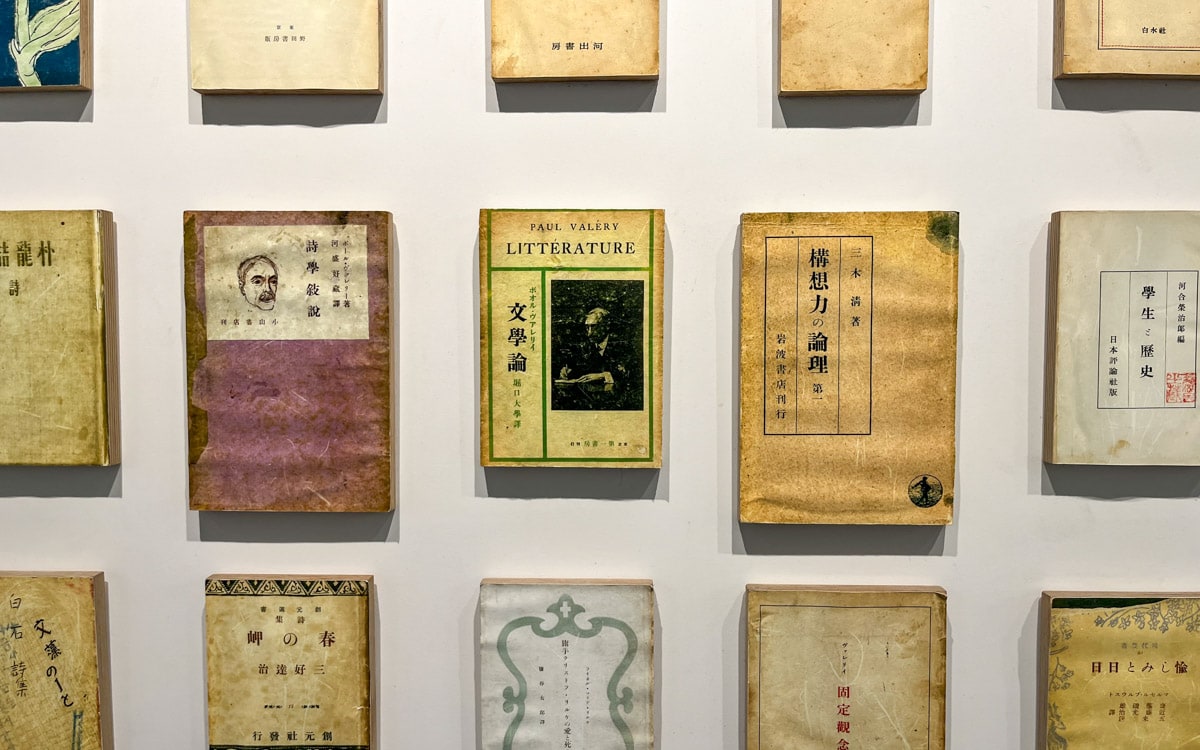
Hanging on the walls is a collection of Yoon’s personal library, showcasing his diverse interests and intellectual curiosity about a wide range of ideas. His collection includes classic books, philosophy, and arts from both the East and the West.
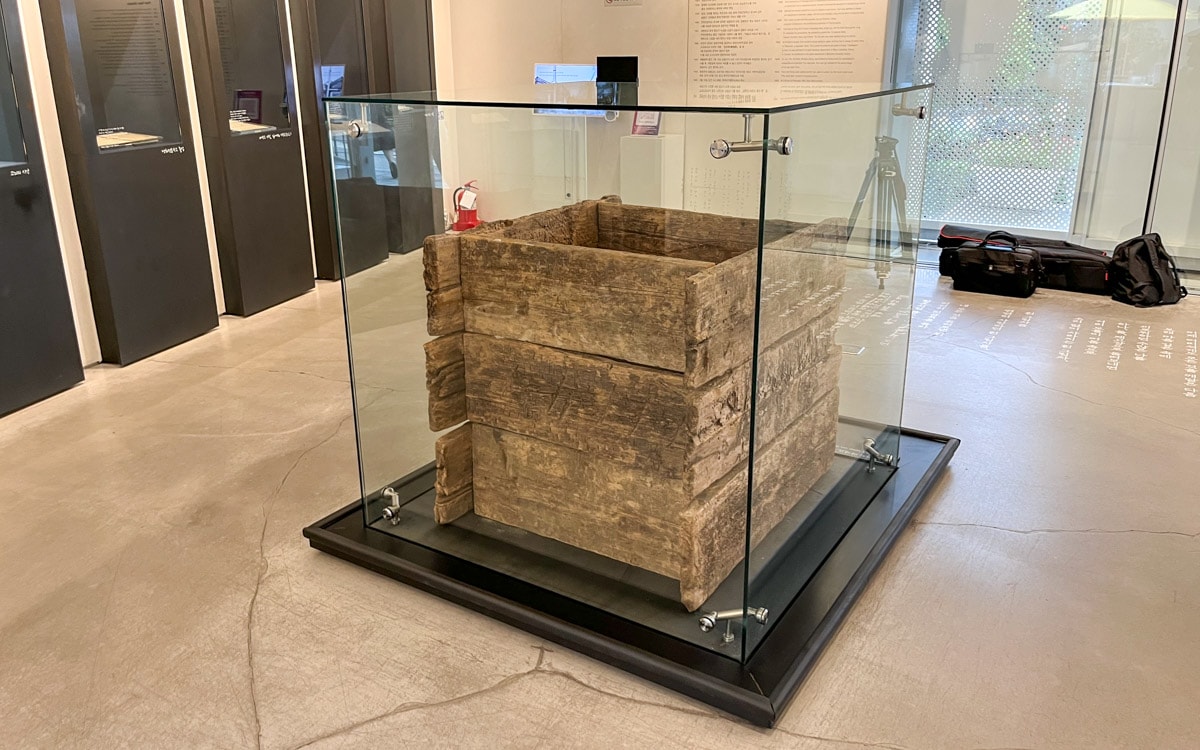
At the center of the exhibition hall stands an original wooden well, composed of preserved wooden boards discovered during the restoration of a well near Yoon’s birthplace. From this well, one could see Yoon’s school and church buildings on the hill to the northeast.
Opened Well (Exhibition Hall 2)
The well mentioned in Yoon’s poem “Self Portrait” serves as a motif that inspired the design of the water tank’s roof in Opened Well (Exhibition Hall 2). This design creates an open courtyard that harmonizes with the elements of the sky, wind, and stars.
A pumping station helps increase the pressure of slow-moving water, enabling it to flow more forcefully. In Yoon’s poems, he spoke of invigorating weary and tired souls, awakening them to regain strength, much like the way a pump revitalizes water. The connection between the water pump and rejuvenation makes you ponder as you explore this exhibition hall, once used as an old water tank.
Finally, the traces left by stored water on the tank’s walls remind us of the passage of time and invite reflection on the aspects of time and memory.
Closed Well (Exhibition Hall 3)
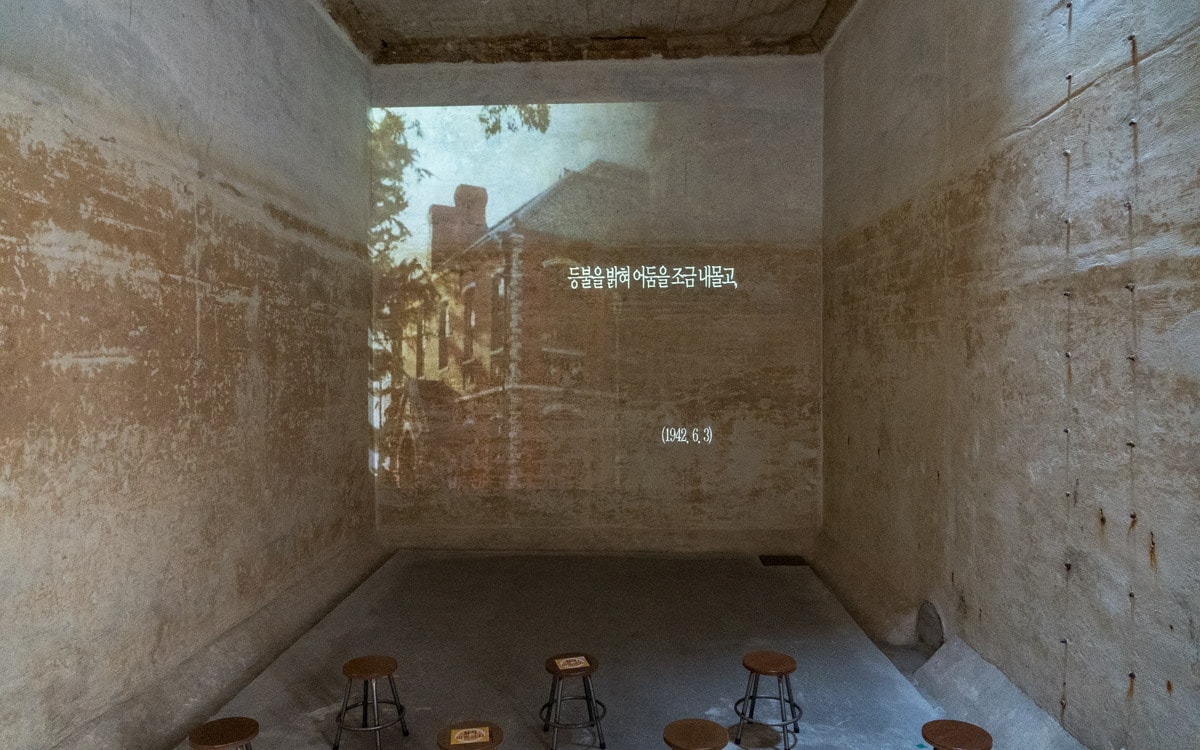
Inside Closed Well (Exhibition Hall 3), visitors can watch a video that portrays Yoon’s life and the poetic world he inhabited. This experience allows visitors to immerse themselves in the emotions of the space, which evokes the essence of Yoon’s literary journey.
As you watch the video, notice the thick walls, sturdy iron gate, and the dim, chilling atmosphere of the space. This serves as a stark reminder of the harsh conditions Yoon endured in his prison cell at Fukuoka Prison.
The screening of “Yoon Dong-ju, the Poet of Stars” runs every 15 minutes from 10:00AM to 5:30PM, with the last screening at 5:15PM.
Café Byoltteulak
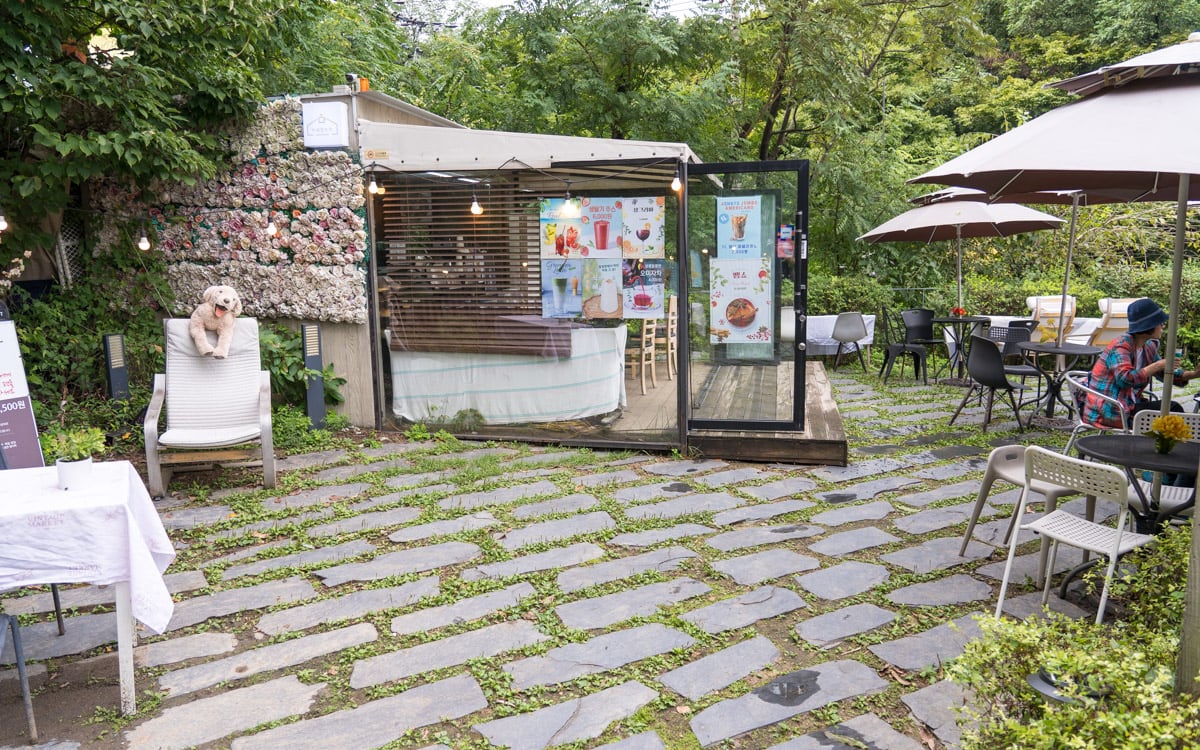
Next to the museum is Café Byoltteulak, a peaceful resting spot. Visitors can enjoy a variety of beverages, including coffee, smoothies, tea, lattes, and more, while taking in scenic views of Seoul and discussing the poet.
Yun Dong-ju Literature Museum Information
Hours
Tuesday-Sunday: 10:00AM - 6:00PM (last admission at 5:30PM)Closed every Monday, January 1st, Seollal, and Chuseok
Admission
Free
Address
119 Changuimun-ro, Jongno-gu, Seoul, Korea
GPS Coordinates: 37.59207, 126.96712
Map
Additional Resources
Klook
Klook offers discounted tickets and reservations for various attractions and services in Seoul, from theme parks and museums to tours and transportation options.
Viator by TripAdvisor
Viator is a popular online platform that helps travelers book tours, activities, and unique experiences worldwide, including in Seoul. It connects users with a wide selection of options – from sightseeing tours to cultural events and outdoor adventures – all offered by local providers.
Rakuten
Save money while exploring Seoul with Rakuten's cashback program. Book your hotels or other services through Rakuten and enjoy cashback rewards and exclusive deals.
If you sign up using the link below, you could earn $30 cashback on your first purchase over $30.
Book Recommendations
For an immersive guide to Seoul, many travelers choose to bring a book along. Fodor's Seoul, for example, offers detailed recommendations on sights, restaurants, maps, and travel tips.
Nearby Sights
Changuimun Gate (Jahamun Gate)
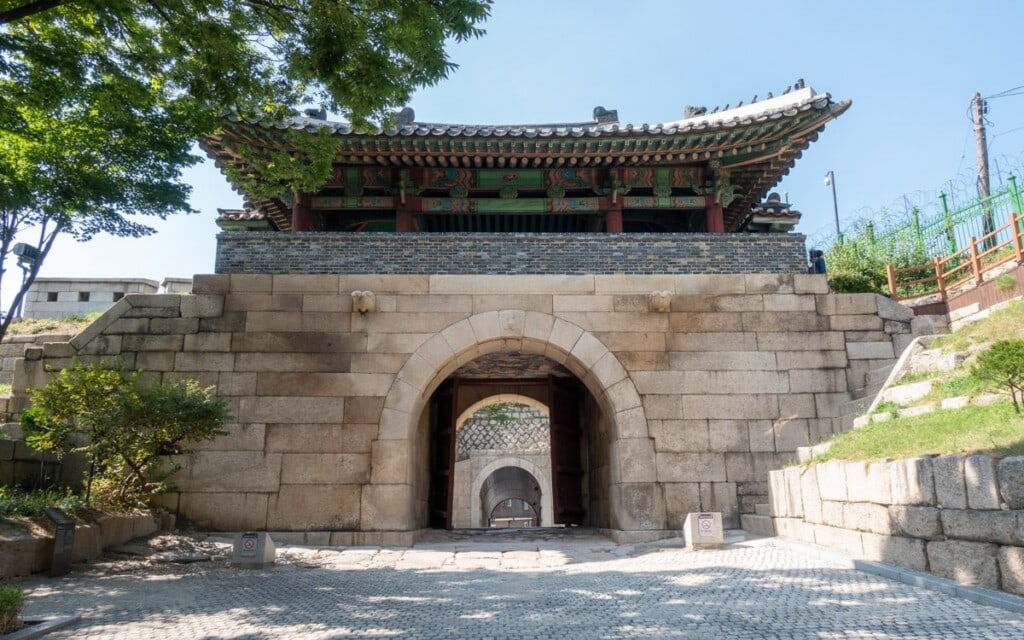
Changuimun Gate, located in northern Seoul, is one of the Four Small Gates of Seoul Fortress. In the past, the gate has also been known as Jahamun and Buksosomun. Construction started in 1396 during the beginning years of the Joseon Dynasty. Built north of the city, Changuimun became a major link between the city and areas to the north.
Cheongun Literature Library
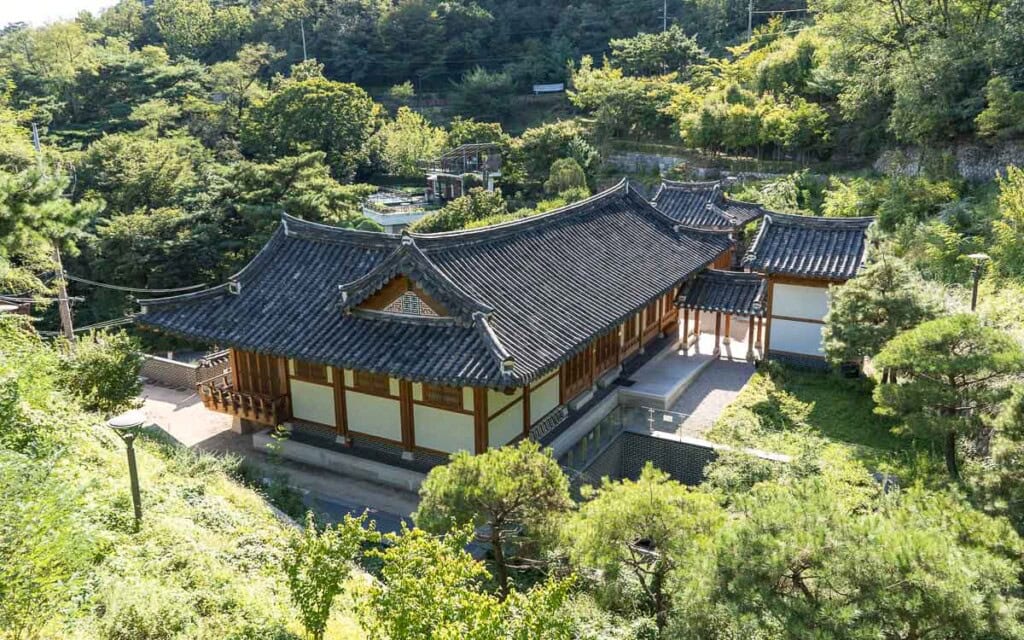
Cheongun Literature Library, the first hanok public library in Seoul, sits surrounded by nature at the foot of Inwangsan Mountain. Built by the Jongno-gu Office, it blends traditional architecture with the surrounding landscape. A hanok is a traditional Korean house built with natural materials like wood, clay, stone, and traditional Korean paper (hanji).
Cheong Wa Dae (Blue House)
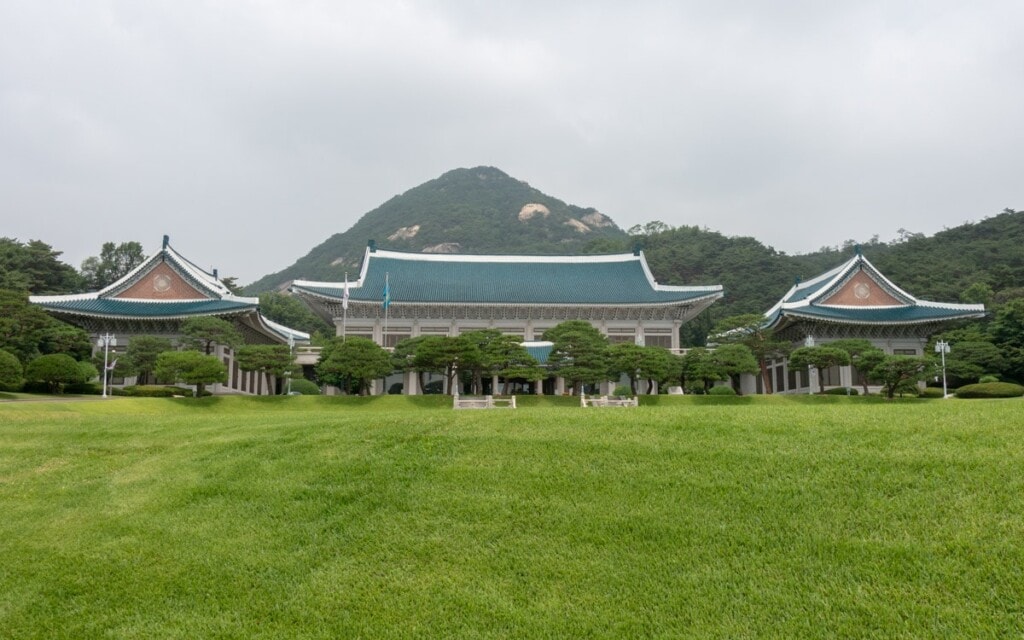
Cheong Wa Dae, or Blue House, is the official residence of the President of the Republic of Korea. It was built with traditional Korean architectural styles. The name comes from the translation of Cheong Wa Dae which means "pavilion of blue tiles." In 1104, King Sukjong built a royal villa at this location.
Segeomjeong Pavilion
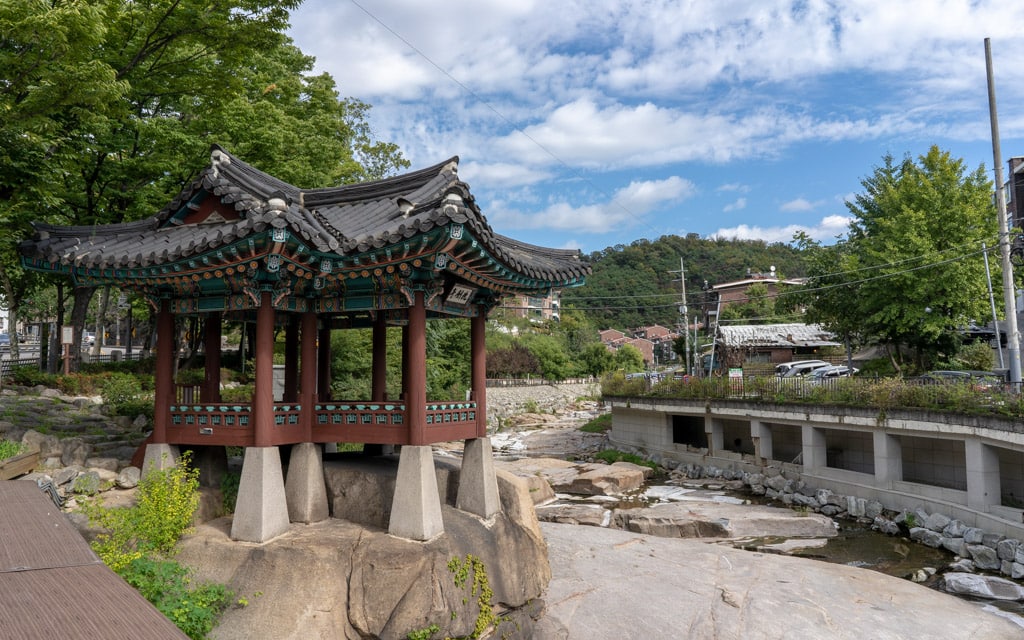
Segeomjeong Pavilion is a pavilion located on Hongjecheon Stream at the base of Mount Bugaksan in northwest Seoul. Due to its location, surrounded by nature, and built on a stream, the pavilion has been mentioned in many literary works, poems, and essays over the years. While historians aren't exactly sure when the pavilion was first built, its history dates back hundreds of years.
Hongjimun Gate and Tangchundaeseong Fortress
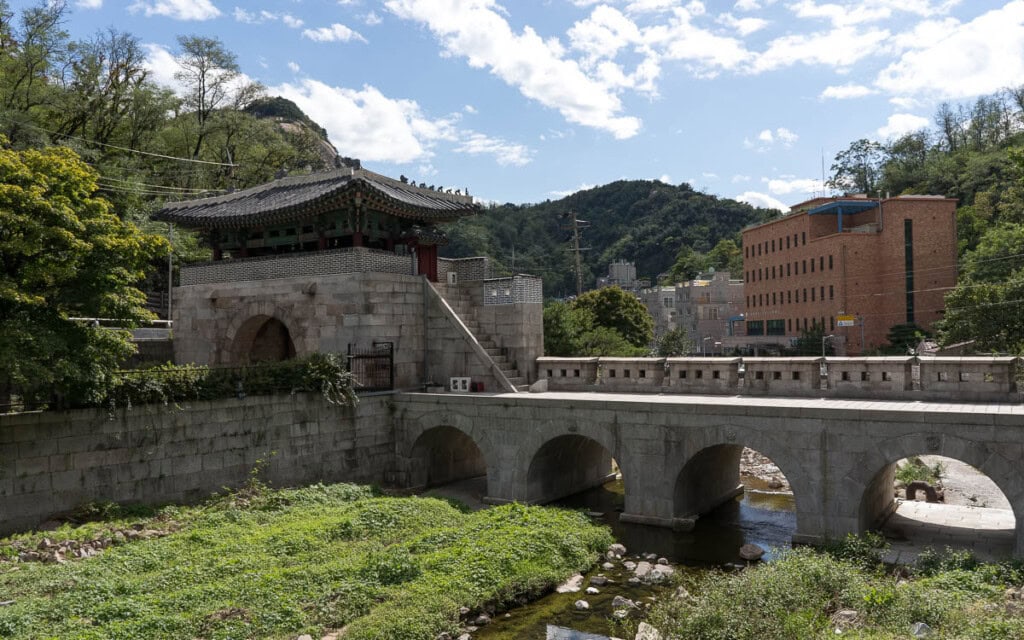
Hongjimun Gate is the main gate of Tangchundaeseong Fortress, built in 1719 during King Sukjong's reign. It served as a key defensive structure linking the Seoul City Wall (Hanyangdoseong) with Bukhansanseong, strengthening the capital's fortifications. Situated on the northern side of Hanseong, the name of Seoul during the Joseon Dynasty, Hongjimun was also called Hanbukmun.
Read more about Hongjimun Gate and Tangchundaeseong Fortress
Last Updated on Mar 20, 2025
